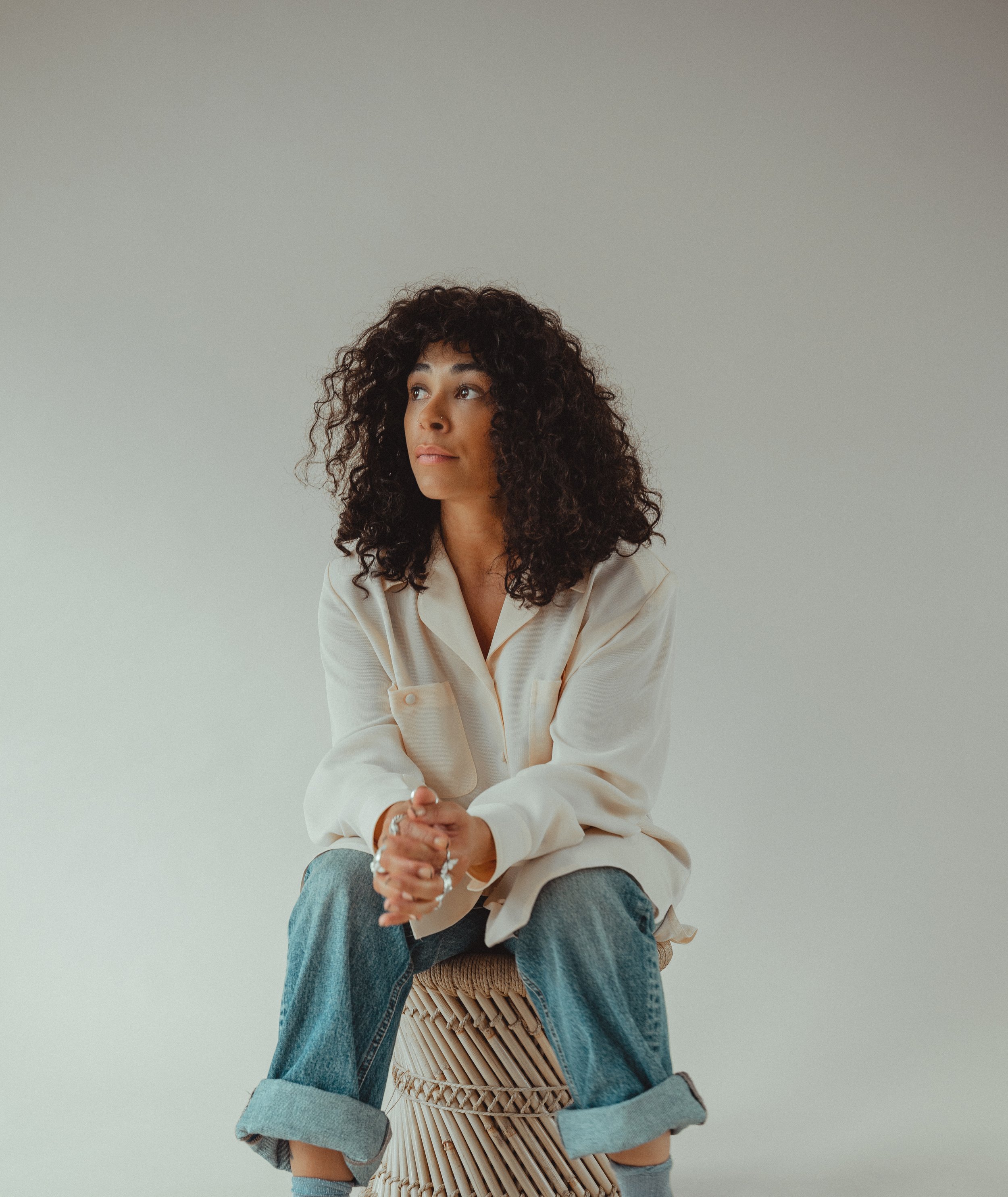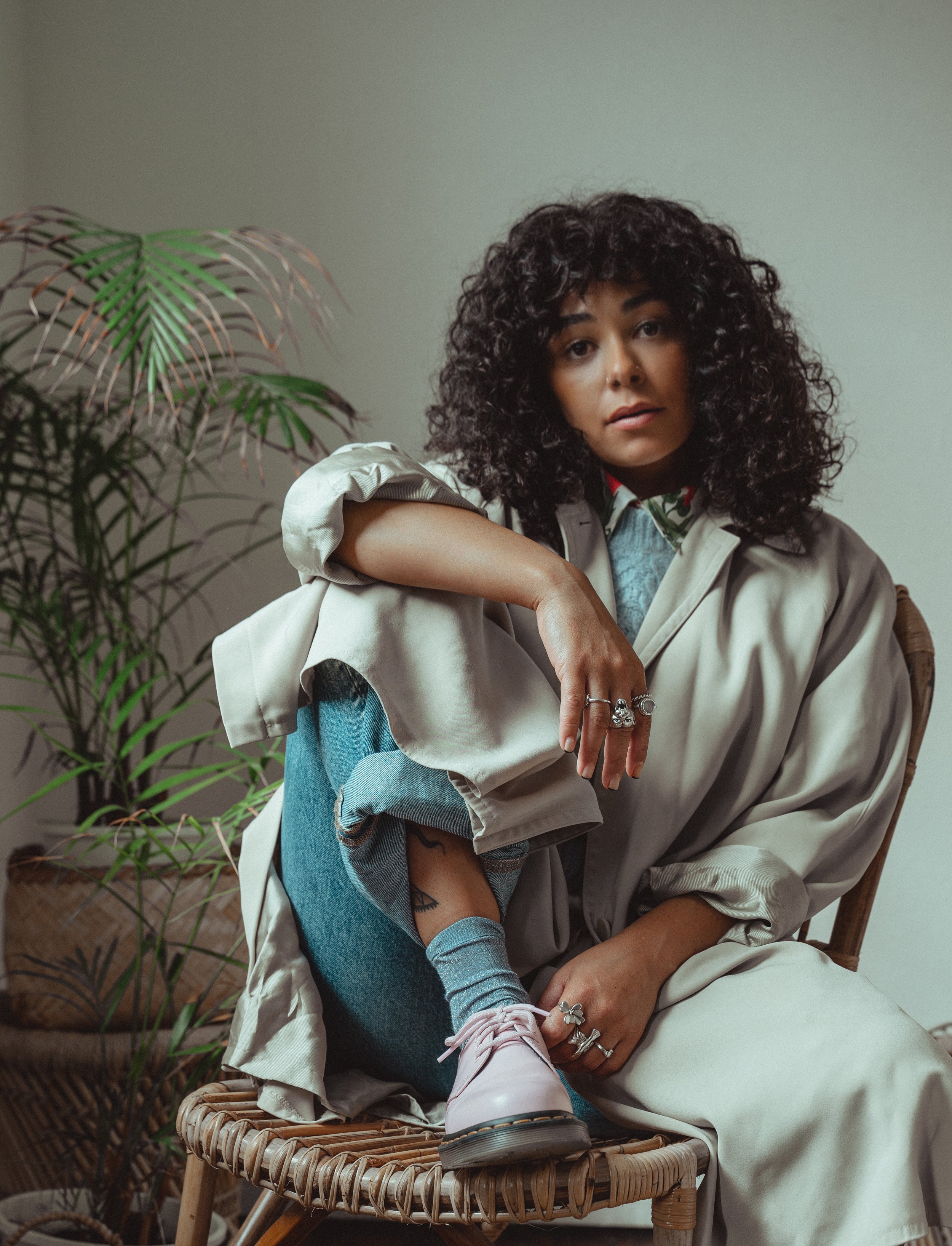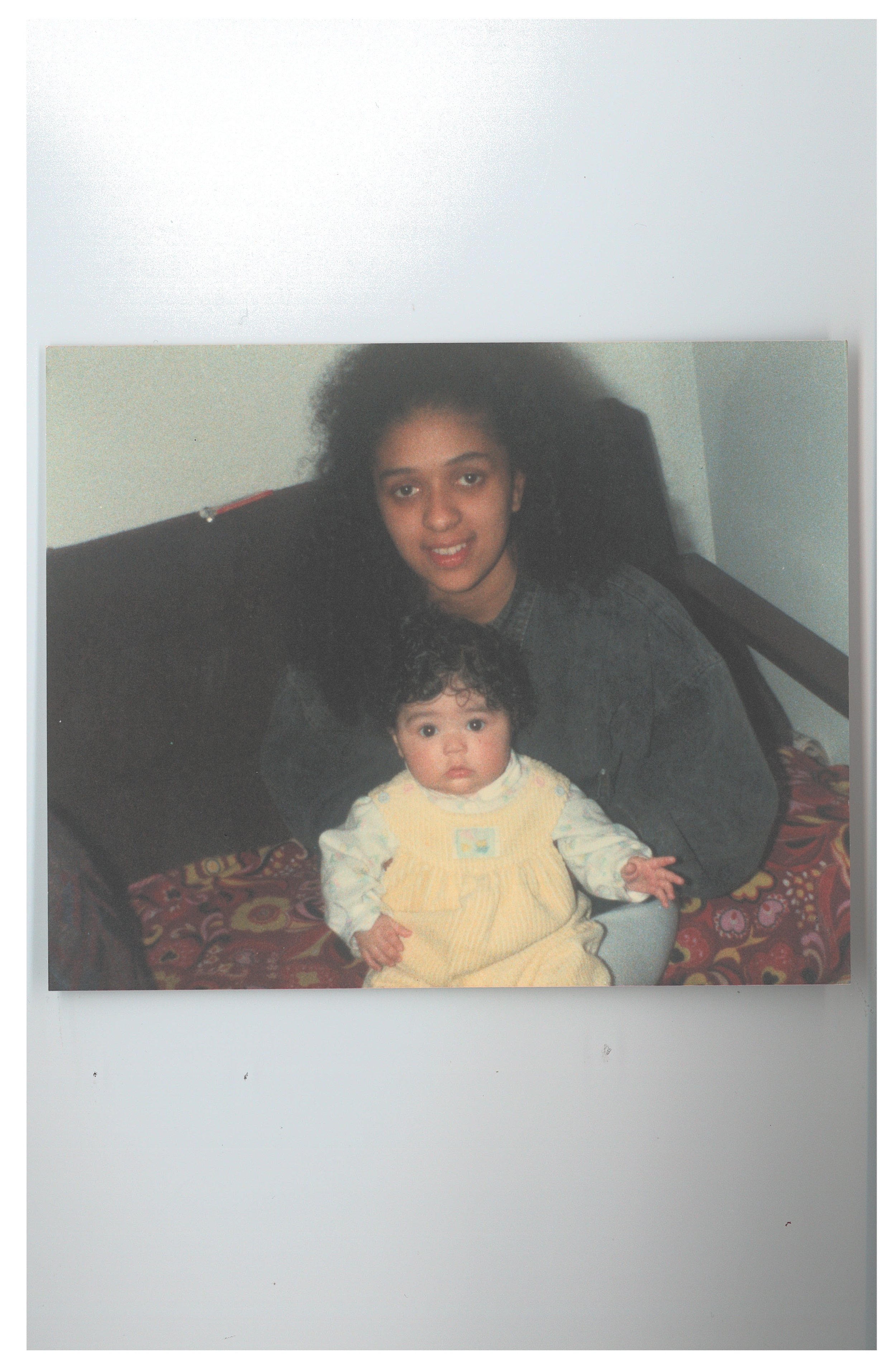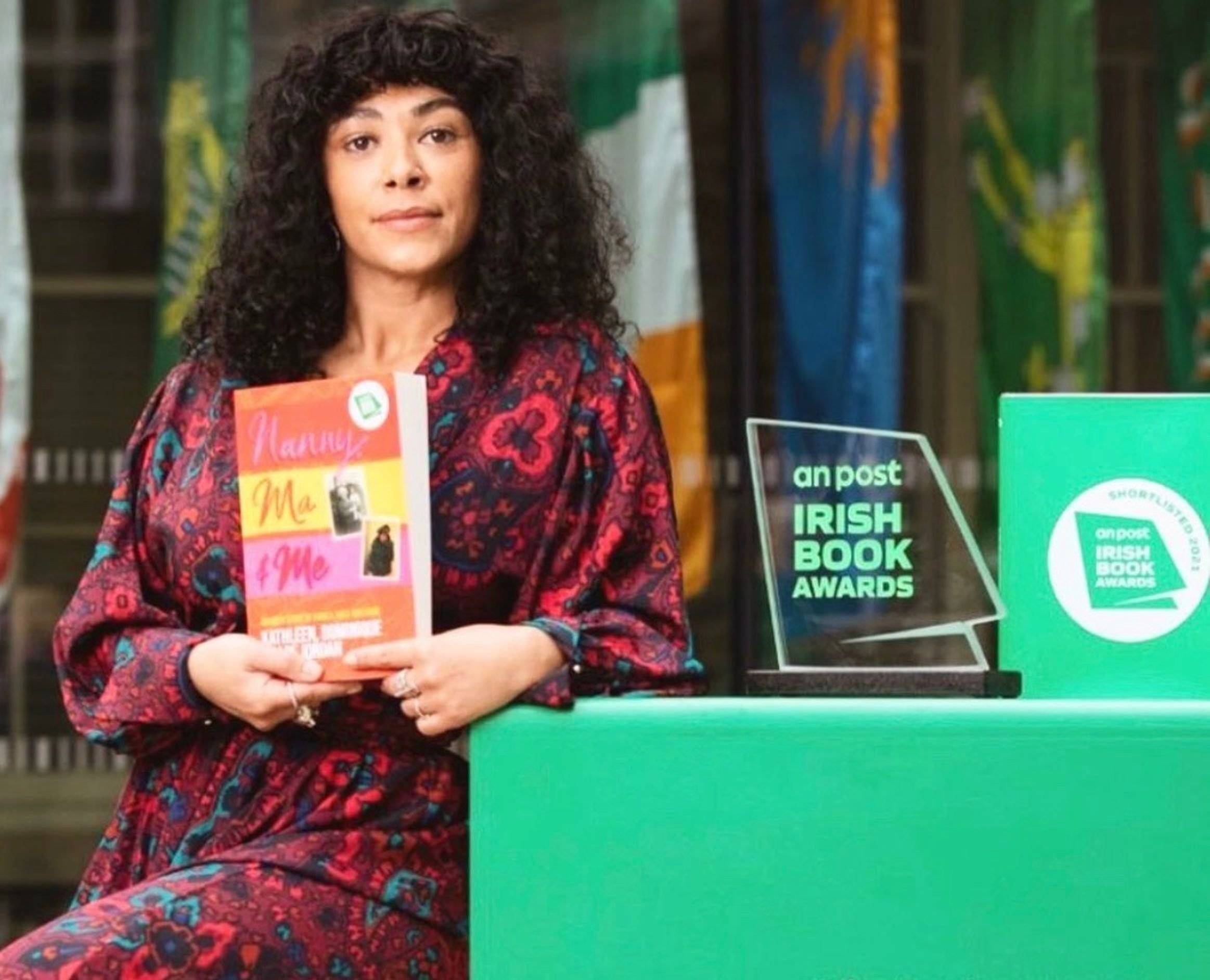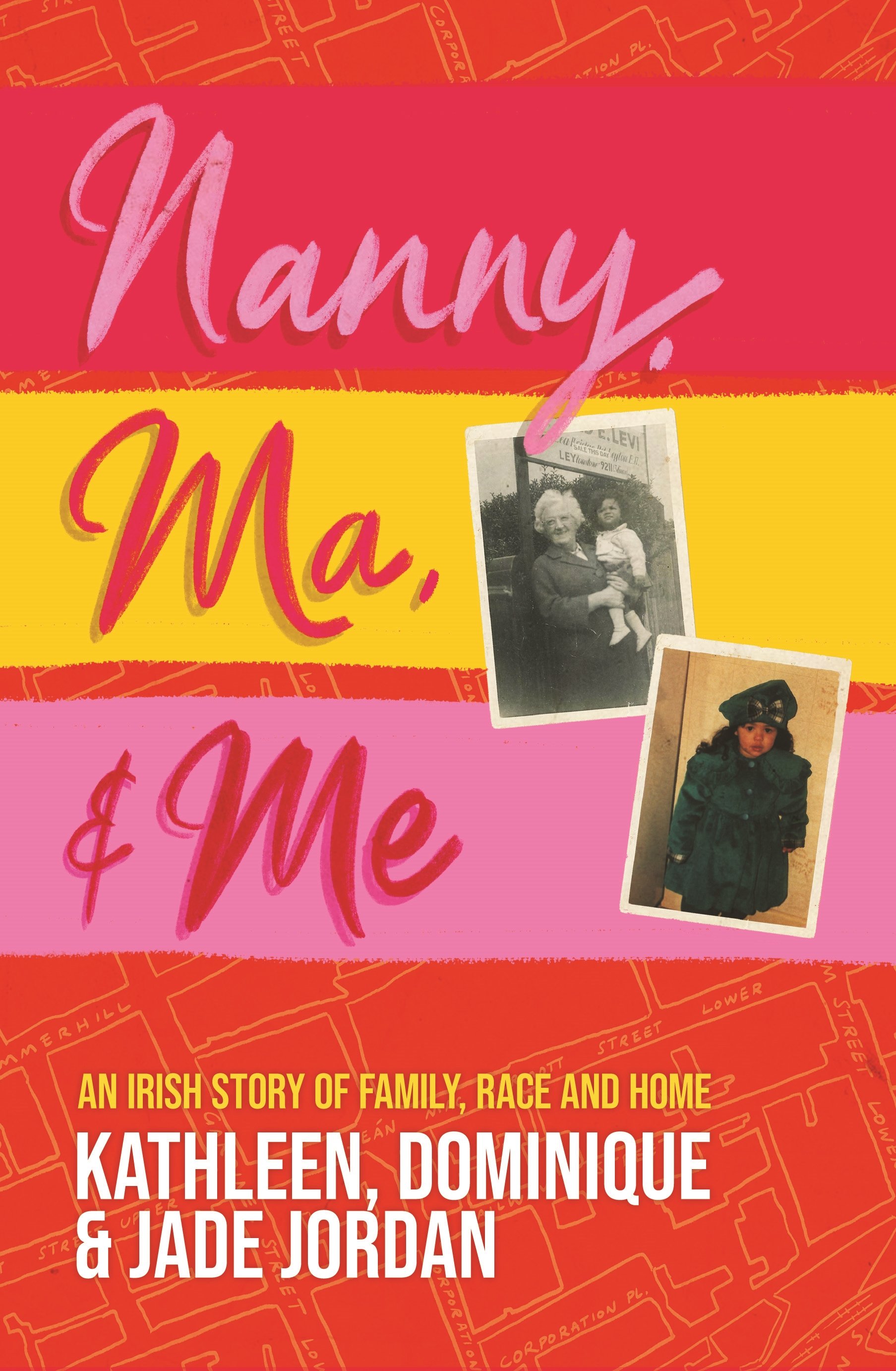Growing Up Different
Actor Jade Jordan has worked with her mother Dominique and grandmother Kathleen, to produce an extraordinary memoir of life as a mixed-race Irish family.
Jade Jordan was just ten years old when she was called a name by a boy she was having a row with. She was on holiday in Bettystown, County Meath. He yelled at her that she was dirty and held his arm up to show how clean his skin looked compared to her own mixed-race colour. This was a turning point for Jade, who had happily spent her childhood in Dublin without ever being made to feel different to others.
“One day I was a typical kid and the next day, I wasn't. That’s how quickly a momentous thing can happen and change your life,” she says.
“I argued with a boy, a row that was only significant because it was the first time that I realised there was something different about me. Until that day, I lived in a world where I thought I was the same as everyone else. I went to school, and I sang, and I danced, and I played with lots of other kids and was like any other girl.”
After that incident, Jade developed an obsession with cleanliness, showering up to four times a day. She fretted about her clothes and shoes being scrupulously clean.
Now in her early 30s, she says that she has forgiven the boy who shouted those words and has learned to manage her fixation with cleanliness. The story is a lynchpin in Nanny, Ma & Me – An Irish story of family, race and home which features the memoirs of Jade, her mother, Dominique and her grandmother, Kathleen. Jade is an RTÉ Audience Choice Award nominee for the An Post Irish Book Awards. The book started as a series of recordings that Jade made of her nanny, 89-year-old Kathleen she wanted to document her long and interesting life.
She interviewed her mother, Dominique, too and posted the interviews on social media. She also posted blogs on Instagram about her own experiences growing up as a mixed race person. The reaction she got online was enough to attract attention from publishers, Hachette Books Ireland which was interested in putting the women's stories into book form.
Kathleen, Dominique and Jade's stories are all told in direct speech, just as Jade recorded them, and it's a testament to the women's eloquence, warmth and wit that the book is a pacey, refreshing read.
It was during the lockdown last year and the killing of George Floyd in America that prompted Jade to think about race and skin colour, and how the Ireland of today compared with the country that Kathleen, Dominique and Jade grew up in. “I wanted to put that question into people's head.
Was Ireland racist? Is Ireland racist?” Jade explains.
Kathleen left Ireland to train as a nurse in London in the 1950s and fell in love with a Jamaican man named Larry. They married and had three children, Dominique (Jade’s mother) and two sons.
Kathleen later decided to return to Ireland with her children in 1978 but without Larry. Life was extremely difficult for Kathleen who was now a single mother with three children to care for.
Shockingly, Kathleen's mother refused to acknowledge her grandchildren. Any time they visited her, the children were made to sit outside the house on a wall, waiting for their mother's visit to finish. Dominique, who was a teenager when her mother moved the family back to Dublin, can still feel the hurt of being ostracised by her own grandmother.
“We felt hurt, we felt degraded. We didn't entirely understand why this was happening, but it felt wrong,” Dominique says in the book.
Dominique's outrage at being uprooted from her home in London, where she “blended in” and transplanted to the tenements of inner-city Dublin, is brilliantly told. She went from being immersed in a multi-cultural society in London to one where everyone was Irish, Catholic and white.
She was a novelty in her school because of her skin colour. Her hair proved to be a big attraction, with other girls and boys wanting to touch it. At teenage discos, held in Temple Bar, the Boney M song, Brown Girl in The Ring, evoked sniggers and jeers.
For the three generations of the Jordan women, the process of telling their stories and recalling their memories – good and bad – was painful and at times, hilarious. The writing of the book brought a close family even closer.
“There were so many emotions when we were doing this. There were great smiles, great laughs but it's super exposing, too,” says Jade. “It was great to reminisce - but obviously there were memories that were going to hurt too. It was probably one of the hardest things I've done,” she says.
Jade, like her mother and grandmother before her, fled Dublin to make her own life in London. She had always loved the stage and chose acting as her profession. After more than ten years of hard graft, tenacity and training, she now has a career as an actress with appearances on Channel 4's The Virtues and Roddy Doyle's Rosie. She has also performed in numerous stage plays for the Abbey Theatre, the Druid Theatre Company and Ark Theatre Dublin.
Now living back in Ireland since 2018, she, like many others before her, struggled to get parts in the early days. She recalls an incident where she was completing a resumé of her work so that she could be considered for parts. When it came to the section where she had to describe her own profile by ticking appropriate boxes, she selected ‘white’ and ‘Irish’.
Her teacher questioned her about it, given that her profile as a mixed-race or Afro/ Caribbean actress would open new roles for her. But there was no option for her to select ‘black and Irish’.
This prompted her to ask what it means to look Irish now. Jade had moved to London to find work as an actress because there were few people of colour on Irish screens. “We didn't have anyone who looked like me on our telly, but I definitely think it's changing. I can list off my friends who are black or brown and Irish who are working on stage or screen.
Ireland has changed, and we should be more open-minded as a country and be more accepting of diversity. We should be willing to adapt to change. It would be really boring to be stuck in the same world the whole time. How boring would it be if everyone was the same? That would be so bland. So, embrace it, love it and be yourself!” Jade says with a laugh.
“The book isn't only about racism, though. Racism doesn't define us or own us as a family. I wanted it to be about our community because community is such a huge part of our lives. The book is out in the world now and it has its own life. I've done my work with it and now it'll do its work.”
Nanny, Ma & Me – An Irish story of family, race and home is published by Hachette and is available now.

